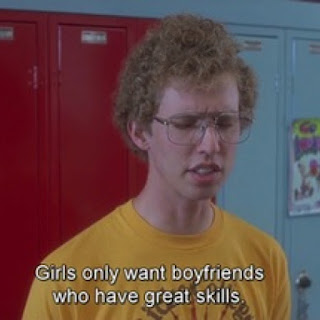Finding a job or
internship can often be like taking another class. Whether you are learning
about job or internship opportunities, writing resumes and cover letters, or
preparing for that coveted interview, there’s a lot that goes into the search
process. Luckily, Tufts’ new job recruiting database, Handshake, is here to
help!
Handshake replaced our
old database, JumboJobs, on June 1, 2017, and includes exciting new functions
that are aimed at helping Tufts undergraduate students, graduate students, and
alumni connect to over 12,000 (and counting) employers and over 2,000 (and
counting) jobs and internships.
Now you may be asking
yourself “how am I supposed to navigate such an incredible database of jobs,
internships, Career Events, and other resources?” Don’t worry; we at the Career
Center are here with 8 tips to help you master Handshake.
1. It’s As Easy As An Upload
As a Tufts student, you already have a pre-loaded Handshake profile, but it’s up to you to enhance it with your education, work experience, organizations/extracurricular activities, etc. The best part about that? All you have to do is upload your resume to Handshake and it will populate those fields for you! While you’re there, make sure that your profile is public to employers (if you want it to be) and check out your profile from an employer’s view!
2. Jobs And Internships Tailored To You
With your newly filled out profile (since you dutifully followed tip #1), you can start to explore a “newsfeed” of jobs and internships on the “Home” page of your account that match your expressed interests. This page will also display job and internship postings that Career Advisors have pinned to students with your major and interests. So whether you’re just starting out on your internship search or looking for a career change, your Handshake account can help you filter though the aforementioned 2,000+ jobs and internships!
3. Be In The Know About Can’t Miss Events!
If you’re anything like me, you hate to miss out on the season’s hottest events. Thankfully, Handshake makes it so that you won’t miss out on a Tufts Career Fair or on-campus interview ever again! Under the “Events” tab in the left navigation bar, you can see links to events held by the Tufts Career Center, in addition to notices about companies who are coming to campus for interviews.
4. Navigation Nation
Maneuvering around Handshake is made easy, with an intuitive interface that delivers custom content to you. Easily check your upcoming interviews and events, review results from your custom search agent, make an appointment with a career advisor, or access career resources.
5. Be Proactive In Your Employer and Job Search
Handshake makes it easier than ever to search for and find employers. On the left nav bar, go to “Search Employers” and type in a specific company name, or filter by location, employer size and industry. You can do the same for a job or internship search by going to “Jobs & Internships” and selecting from 18 different filters. If you find a set of filters you like, you can select “save these filters” so that next time you go to conduct a job or internship search, you can continue to browse without having to reenter your preferred filters! Find a job you are interested in? You can favorite it at any time so that it is easily accessed under “My Favorite Jobs.”
6. Handshake Help
Have specific questions about anything on Handshake? Check out the 2-minute training videos, and the student/alumni Help Center.
7. An Abundance of Employers
One of the perks of Tufts partnering with Handshake is that it is easier than ever for employers to connect with Tufts students. Handshake has all of the same great employers that were in Jumbo Jobs, plus more. Even better, they are specifically looking to hire Tufts candidates, so take advantage of the wide array of companies looking for candidates from Tufts!
8. Beyond Handshake
If you are looking for additional career resources outside of Handshake, Handshake STILL has you covered! Under the Resources tab in Handshake, go to “Career Resources”. Here, you can find links to career development tools and other job search websites such as GoinGlobal, Focus2, Careers A -Z, SpotlightOnCareers, and more. These additional resources are free to Tufts students and alumni!
We hope that these tips
help to ease the transition from JumboJobs to Handshake, and don’t forget that
you can always set
up a 1:1 appointment with one of our Career Advisors to speak more
in depth about major declaration, job & internship search, networking and
much more!















